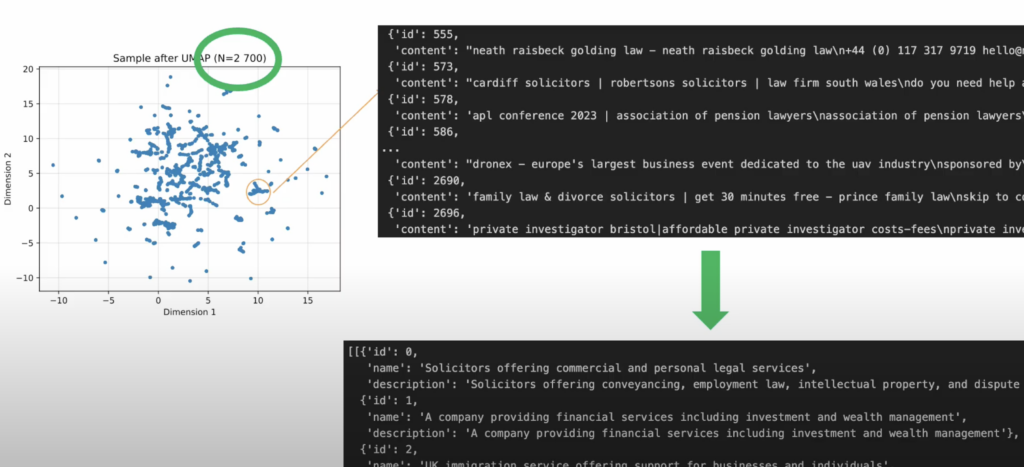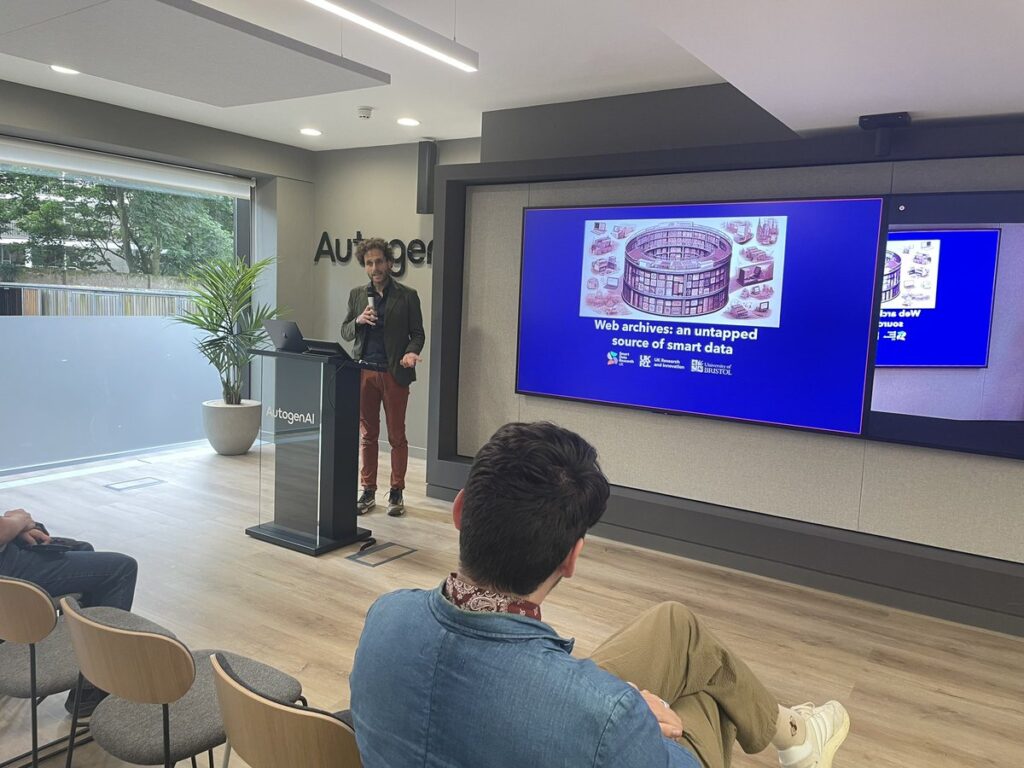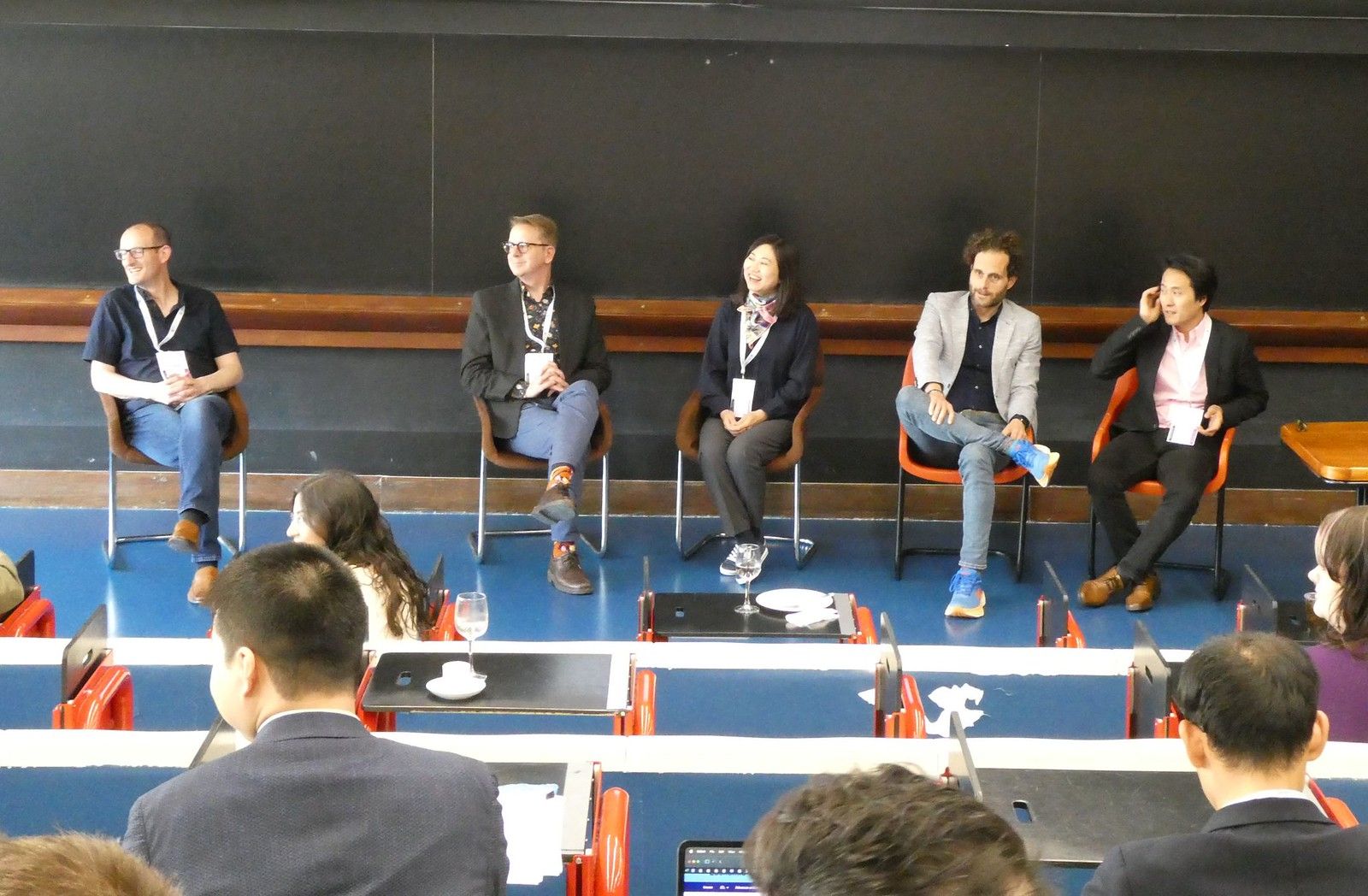Building an Atlas of Economic Activities in the UK
A team from the University of Bristol, supported by Smart Data Research UK’s accelerator scheme, is building new tools that can better categorise and track modern businesses. The project will give researchers and policymakers more accurate data to help them study how the economy works.
At a glance
Creating a smart data-led classification of economic activities in the UK
Developing an accessible online tool for researchers and policymakers
Supported by the British Library and the Common Crawl
Potential to transform policymaking
Timeline: Initial tools launching end of 2025, full research published 2026

What problem does this research address?
Currently, if you set up a company in the UK, you receive a Standard Industrial Classification or ‘SIC’ code to identify your firm’s type of economic activity. But SIC codes have not been updated since 2007, so if you specialise in a newer industry, whether it’s health tech or cybersecurity, there is no SIC code corresponding to your specialism. This means the development of certain sectors of the UK economy is not being effectively tracked.
This 18-year data gap affects everything from infrastructure planning to skills training, leaving policymakers flying blind in a rapidly evolving economy. Key infrastructure planning decisions on hospitals, house building and transport are dependent on accurate information about economic activity. Without an accurate picture of economic activity, it’s more difficult to provide the skills and training needed for the workforce.
Now, the University of Bristol team is developing a smart data solution to this challenge. ‘An Atlas of Economic Activities in the UK’ draws on the vast reserve of ‘web archives’, which contain archived snapshots of webpages. By examining company websites – that is, their own online self-descriptions of their work – the team, led by Professor Emmanouil Tranos, aims to produce a more dynamic overview of economic activity in the UK and help researchers use web data at scale.
Importantly, their solution is an open and reproducible one that follows the FAIR data principles.
“We’re developing a new system for trawling the web to reshape the national understanding of the economic landscape”.
Professor Emmanouil Tranos

Data
The project leverages Common Crawl, a massive open repository containing monthly snapshots of hundreds of billions of web pages. This includes UK commercial websites (.co.uk domain), dating back over a decade.
Emmanouil says, “We will use the Web – arguably one of the largest sources of smart data – to create a granular and dynamic typology of economic activities in the UK. The framework will allow the continuous monitoring and mapping of economic activities.”
As the team’s proof-of-concept study indicated, data from web archives can help researchers map the evolution of different tech industries over time. They can then match their findings with results of previous observational studies. What emerges is a far more informative picture than the next-best analysis using SIC data.

Benefits of this data
- Near real-time updates – capturing business evolution as it happens, not years later
- Self-reported accuracy – companies describing their own activities in their own words
- Granular geographic detail – location data embedded in website content
- Historical depth – tracking economic changes over 10+ years of archived data
- FAIR data and reproducible pipelines

What’s the potential real-world impact?
The Atlas of Economic Activities will give researchers and policymakers a dynamic, up-to-date view of where new industries are emerging and clustering across the UK. This could be used to help inform everything from where hospitals are built to what skills get funded. Although the government is currently updating the SIC codes in 2026, the project can offer a solution for ongoing monitoring of the dynamics of the economy, both at local and national scale.
For the public, this could mean:
- Better job training or support that matches actual local industries
- Smarter infrastructure planning – putting transport links where people actually work
- More targeted support for emerging sectors in your area
- Housing and services planned around real economic activity, not outdated assumptions
- Better informed local economic and industrial policies
- All in all, a better understanding of local economic landscapes can lead to more resilient local economies

Partners
The British Library and the Common Crawl.
Find out more
You can follow the work of An Atlas of Economic Activities in the UK on the team’s website and see Professor Emmanouil Tranos taking part in ‘Using internet search data to improve health research’, a webinar co-hosted by Smart Data Research UK and Google Health:
Smart Data Research UK would love to hear about your research!
Do you have a smart data case study to share? Contact our team at smartdataresearch@ukri.org to showcase your work.
